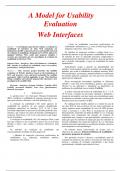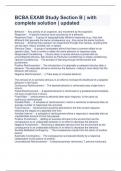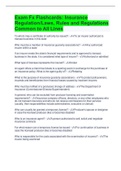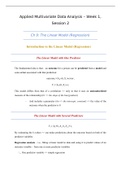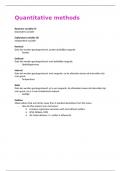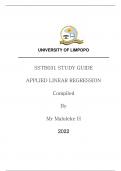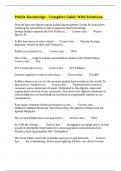1. Introduction ................................................................................................... 3
Method definition ............................................................................................... 3
Technique definition ........................................................................................... 4
Notation definition .............................................................................................. 4
Procedure definition............................................................................................ 4
Model definition ................................................................................................. 4
Meta-model definition ......................................................................................... 4
Tool definition .................................................................................................... 5
Methodology definition ........................................................................................ 5
Method Engineering definition .............................................................................. 5
Situational Method definition ............................................................................... 5
2. Meta-data modeling ........................................................................................ 6
Meta-data modeling PDD notation ........................................................................ 7
Concept ......................................................................................................... 7
Concept or property? ....................................................................................... 7
Association ..................................................................................................... 7
Ternary association ......................................................................................... 7
Multiplicity ..................................................................................................... 7
Aggregation.................................................................................................... 7
Association or aggregation? .............................................................................. 7
Generalization ................................................................................................ 7
Types of concepts ........................................................................................... 8
3. Meta-process modeling .................................................................................... 8
Process definition ............................................................................................... 8
The abstraction of concepts .............................................................................. 8
Meta-process modeling PDD notation .................................................................... 9
Activities ........................................................................................................ 9
Initial and final state ....................................................................................... 9
Roles ............................................................................................................. 9
Levels of meta-process models ......................................................................... 9
4. PDDs and modeling patterns........................................................................... 10
Documenting PDDs........................................................................................... 10
Activity table: ............................................................................................... 10
Concept table: .............................................................................................. 10
Version dependent data ................................................................................. 10
5. Overview of ME research & Method comparison ................................................ 11
Method construction ......................................................................................... 11
1
, Tool support .................................................................................................... 12
Current trends ................................................................................................. 13
Method comparison .......................................................................................... 13
6. Fragments and method assembly .................................................................... 15
Method fragments ............................................................................................ 16
Structuring the method base ............................................................................. 16
Method assembly – rules and guidelines.............................................................. 17
7. Formalization in Method Engineering ............................................................... 18
Predicate Calculus ............................................................................................ 19
8. Incremental method evolution & method rationale ............................................ 20
Method increments ........................................................................................... 20
Method rationale .............................................................................................. 20
9. Method association approach for situational product implementations .................. 21
10. Integrating DevOps in Scrum by Method Increments ...................................... 23
2
, 1. Introduction
Issues in Information Systems domain: 1) How? 2) Which method? 3) What model? 4)
What tool? 5) How to get more mature?
Response to these issues: many methods and techniques, although there is no generic
answers. It al depends on the situation: project, company, people, budget, timing,
technology & platforms. Therefore, a study and adaption of methods and tools is needed.
Scientific studies in Method Engineering:
- Formal description of methods
- Identification of method fragments
- Situational configuration of project specific methods
- Method comparison
- Incremental method evolution
- Formalization of method properties
- Derivation of tool support
Method definition
A method is an approach to perform a systems development projects, based on a specific
way of thinking, consisting of directions and rules, structured in a systematic way in
development activities with corresponding development products.
Comes from Methodos, Greek for: way of investigation.
A method consists of phases. 1) Preparation phase, 2) several execution phases, and 3)
completion phase. Every phase end is a major deliverable or a go/no-go decision.
A phase consists of activities. Activities may consist of sub-activities, 3 or 4 levels of sub-
activities is sufficient. An activity consists of a set of basic activities to be executed possibly
conditionally in some order.
3

